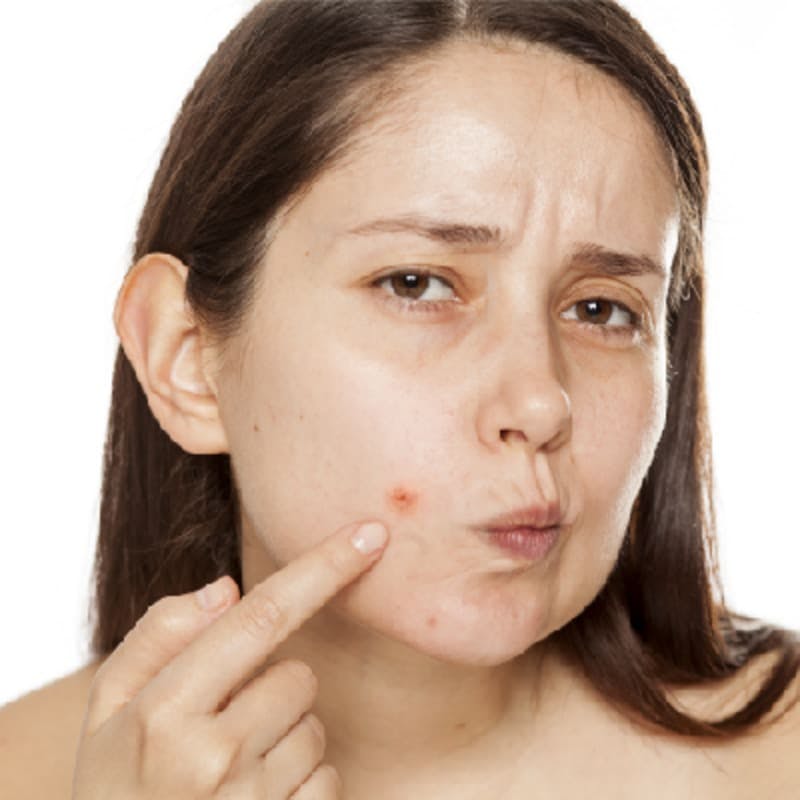Depending on the severity of acne, there is a range of treatments available. If symptoms are mild, over-the-counter topical treatments may be prescribed by your local pharmacist.
Written by Medical Professional
Can be Treated Online
Appointments Available Today
Written by
Dr Farah Gilani
Doctor
Reviewed by
Dr Faiza Khalid
Doctor
Last Updated:
Next Review: Sep 1, 2025
Guide contents
01Acne treatment
Articles related to Acne Treatment
Acne treatment
Depending on the severity of acne, there is a range of treatments available. If symptoms are mild, over-the-counter topical treatments may be prescribed by your local pharmacist. In more severe cases, prescription medications may be required.
There are also a variety of natural remedies, high street products and at-home approaches to treating acne. If you are unsure which treatment is best for you, we can help with:
How do I get rid of acne? And what is the best acne treatment?
This chapter covers
- How to treat acne?
- Topical treatments for acne
- Oral acne medication
- Natural remedies for acne
- Self-care advice for acne
How to treat acne?
Acne treatments fall into the following categories:
- Topical treatments
- Oral treatments
- High street products
- Natural remedies
- Self-care
Topical treatments for acne
Topical treatments will usually be your first choice if you have mild to moderate acne. Apply them to the entire affected area of the skin, not just to individual spots. Depending on the treatment, it is recommended that you apply either every night or twice daily.
Topical treatments include:
- Benzoyl peroxide
- Antibiotics (e.g. tetracycline, erythromycin and clindamycin)
- Retinoids (e.g. adapalene, tretinoin and isotretinoin)
- Azelaic acid
- Nicotinamide
Prescribed topical preparations may contain one or a combination of the above.
If your face goes red or is irritated by a topical treatment, stop for a few days. You should then try using the treatment less often, for example once or twice a week, before building up gradually to regular
Do not use isotretinoin if you are pregnant or think you might be pregnant as it can cause birth defects. Use multiple methods of contraception for one month before, during, and one month after treatment.
Oral acne medication
Your GP may prescribe a course of antibiotic tablets to be taken in combination with a topical treatment. These tablets are usually erythromycin or a type of tetracycline. You should take your course of antibiotics for at least two months, continuing use for six months after there is no further improvement.
Oral treatments work best when combined with a topical gel or cream, usually a topical retinoid. Sometimes the first antibiotic that your GP tries does not work, but if this is the case, there are several alternatives that you can try. It is important to return for review, in order to change the treatment if needed. When taking oral antibiotics, you may find that you experience side effects, such as stomach upset, or thrush. If this is the case, you should see your GP to consider whether you can switch to a different medication.
In cases of severe or resistant acne, where oral antibiotics combined with topical treatments are not effective, the GP may consider a specific type of oral contraceptive pill, called co-cyprindiol, for women. While this treatment is often effective to treat acne, it carries the risk of deep vein thrombosis (a blood clot, usually in the leg).
Your GP may decide to refer you to the dermatologist, and consideration may be given to starting oral retinoids. This is an effective but potent treatment for acne, and cannot be taken if there is any possibility of pregnancy. It can also have an impact on mood, mental health, and rarely cause blood abnormalities. For these reasons, a full assessment and regular monitoring is required when taking it.
Natural remedies for acne
There are a number of natural acne treatments that may help get rid of acne. As many of these remedies are quite potent, make sure to dilute them before applying them to your skin. Methods to treat acne naturally include:
- Apple cider vinegar. Apple cider vinegar contains lactic acid which helps reduce inflammatory lesions. Make sure to use it in small amounts diluted with water
- Tea tree oil
- Green tea applied directly to the skin
Self-care advice for acne
There are many steps you can take at home to help ease the symptoms of acne:
- Don’t pop. Try to avoid picking or squeezing your spots as this can aggravate them and cause scarring.
- Take action. Start the right treatment as soon as symptoms appear. This will also help you avoid permanent scarring.
- Don’t rush. Most treatments take at least two months before seeing improvement. Make sure you follow the correct guidelines to see maximum results.
- Care for your skin. Cleanse your skin and remove make-up with a mild soap, an oil-free soap substitute, or a gentle cleanser and water. Do not scrub too hard as this can irritate the skin and aggravate your acne. Remember that acne is not due to poor hygiene.
So, how does it work?
Book in seconds
Select a day and time that suits you — then see a doctor on your phone or at a pharmacy.
Speak to a doctor
Have a video consultation and be examined by one of our expert doctors.
Get back to feeling better
Whether it’s a diagnosis, personalised treatment plan or prescription — our doctors can help.
